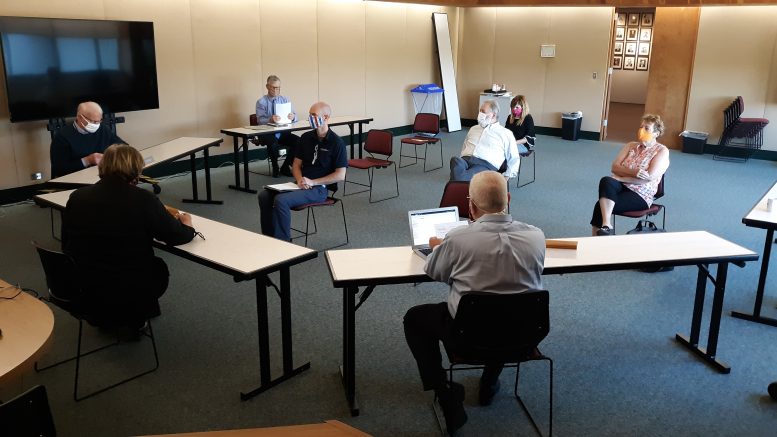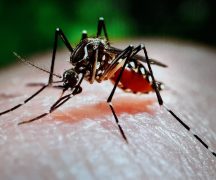By JAN LARSON McLAUGHLIN
BG Independent News
When the Wood County Board of Health members discussed putting a levy renewal on the ballot, they had no idea that COVID-19 would make public health a household word.
Prior to the pandemic, plans had started for a significant levy campaign.
“Then coronavirus hit,” Wood County Commissioner Ben Batey said.
The local silver lining to the pandemic is that voters are now more likely to realize the value of the health department, Batey told the county commissioners Tuesday morning.
“We feel like our response to this pandemic is our campaign,” Batey said. “I think people generally recognize why the health department is important.”
Batey explained to the county commissioners the 0.5 renewal levy planned for the ballot in November. The 10-year levy will cost the owner of a $100,000 home about $13.16 a year. The levy brings in about $1.5 million a year.
The health board agreed to keep the levy as a renewal, rather than ask for more money.
“Our fund balance is strong,” Batey said.
And after the pandemic hit, the decision to go for a renewal was reinforced. The health department doesn’t want to be a further strain on local residents, Batey said.
“Especially during this time. It would be an economic hit to a lot of families,” he said.
The Wood County Commissioners praised the work of the health department during the COVID crisis.
“You have been very visible – whether you wanted to be or not,” Commissioner Doris Herringshaw said.
The health department has partnered with other agencies to work on the local response to the pandemic, and has been available for weekly conference calls for public officials.
“I think the department has done a terrific job showing leadership in Northwest Ohio,” said Frank McLaughlin, former health board president and head of the levy campaign.
Commissioner Craig LaHote credited the health department for not needing to ask voters for more money.
Batey pointed out that the health department has worked to access more federal and state funding, in an effort to decrease its dependence on local levy funding.
“We’ve been able to leverage a large amount of federal funds,” he said.
At the same time, the health department has also expanded its services to meet the dental and medical needs of local residents.





